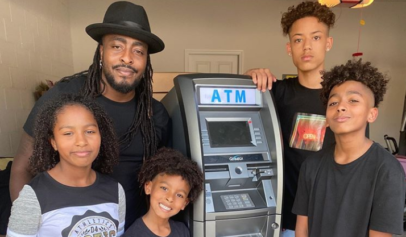
In 2007, African-Americans ran 7.1 percent of businesses in the United States. Five years later, that number grew to 9.4 percent. The portion of U.S. businesses with employees led by Blacks slightly increased as well—from 1.9 percent in 2007 to 2.0 percent in 2012. These developments are particularly remarkable, given that the nation was still rebounding from the economic downturn during this period. The data comes from the Census Bureau’s recently released 2012 Survey of Business Owners. Roughly 1.75 million business owners took part in the survey, which takes place every five years.
While Black businesses are rising, challenges remain. Black businesses, for example, typically sell for just more than $72,000. That’s far below the sale of the average American business of $1.2 million. And anyone betting that rising Black entrepreneurship will solve the unemployment crisis in the African-American community is likely mistaken. That’s because most Black businesses don’t employ anyone. Employment at Black business only grew from 0.8 to 0.9 percent between 2007 and 2012. In fact, the average white business employs 6.4 times many workers as Black businesses do, and the number of Black companies without employees jumped from 8.5 to 11.2 percent between 2007 and 2012.
Yet, Black unemployment remains high nationwide. In September, the African-American unemployment rate was 9.2 percent, while the white unemployment rate was 5.1 percent. In the third quarter of 2015, Black unemployment was particularly high in states such as Illinois and California. These states also happen to be homes to two counties with the largest amount of Black business—Cook and Los Angeles. So it’s possible that if Black businesses continue to grow in those counties, the Black unemployment rate will decline. The outcome, of course, would also depend on the types of business in question and the preferences of the business owner. An African-American medical supplier, for example, might hire employees from across the racial spectrum. An African-American newspaper publisher, on the other hand, might be more likely to have a stable of Black reporters and support staff.
The good news about the Black unemployment rate is that in six states — Indiana, Michigan, Mississippi, Ohio, Tennessee and Texas — it has dropped to pre-recession levels, the Washington Post reports. And in three other states—Missouri, New York and South Carolina—it is approaching pre-cession levels. With a Black unemployment rate of 10.5 percent, Alabama has the dubious distinction of being the state with the worst labor prospects for African-Americans.
But Alabama is near Georgia and Florida, two states that pre-recession boasted the largest amount of Black businesses in the country, aside from New York. If some of the prosperity from those states doesn’t bleed into Alabama, perhaps Black Alabamans could move to one of the wealthier states nearby. Black Southerners moved North in the early 20th century precisely to find work in a rapidly industrializing U.S.
There’s no doubt that Black entrepreneurs can play a key role in lowering the African-American unemployment rate, but they must have employees to do so. The growth of Black businesses lacking workers benefits a select few. The Small Business Trends website even states that the growth of these businesses “might not be a good thing” because “by definition, non-employers do not provide paid employment for others. Moreover, they are tiny companies, with very little economic impact.”
A case in point: The average non-employer business only yielded $47,700 in yearly sales in 2012.
While it’s pleasing to see Black businesses on the rise, such companies will have a greater impact once they create jobs in the African-American community, lower the Black unemployment rate and benefit the local or regional economy.


